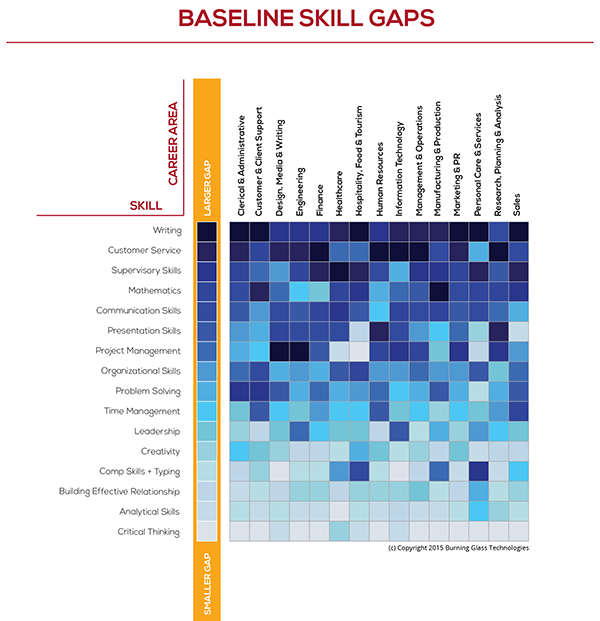An aspiring professional can never have too much advice; especially invaluable is the advice of a veteran professional. Today via email, retired Technical Marketing Support manager and Evansville native Steve Gerbig, gave his own take on the skills needed by both prospective employees and by professionals. Working with multiple plastics and manufacturing companies while also getting an engineering degree from the University of Evansville, Gerbig approaches issues from both a management and a technical perspective. Retiring with nearly 40 years of business experience, Mr. Gerbig has a wealth of knowledge on how to be successful in management that he has put forward. Readers would do well to head his advice, as they will gain insight from someone who has already been through the ordeals of the business world.
What is your professional history (include your timeline and roles)?
Gerbig: “When I came out of the Marines in the late 1960’s, I took a job at McMasters Division of George Koch Sons as an office manager. The job included preparing shipping papers, invoicing, etc. This was a tiny division that made custom injection molded plastics, a proprietary product line and parts for the Metalcraft Division of George Koch Sons. I had taken a few engineering classes at night at University of Evansville so the company agreed to train me in plastic product and tool design. While working in this tiny company, I was exposed to most of the different disciplines that make up business management. This experience was to define my future in the plastics industry.
Upon leaving George Koch Sons in 1972, I spent short periods of time at several businesses including a custom molder in Henderson County, KY. I was hired as a sales person but was quickly promoted to production manager and then general manager. When the company was sold, I was let go. I then spent about six months as a shift foreman at a startup custom molder in Evansville. This was an interim job that I took while I organized a startup custom molding operation. This effort evolved into Basswood Manufacturing Co. of Chandler, IN, where I spent five years as manufacturing manager.
In 1981 I accepted a position as a tech service engineer with what was then known as Fiberfil Division of DART Industries. While Fiberfil was still a relatively small business, it was one of the largest companies I had worked for. Our business was compounding of engineering thermoplastics. As a tech service engineer it was my job to assist our customers in the selection of material to meet the needs of a given part, then to help them manufacture (injection mold) the part. While this was a highly satisfying job, I had just picked up my degree from U of E and began looking for something a bit more challenging. The company was building a new marketing group that would take over the end-use selling responsibility. I took the newly formed position of market development specialist. My job was to work with our injection molding customers’ customers to get our materials specified. These customers included manufacturers in the automotive, Electrical/electronic, power tool, appliance and lawn & garden equipment industries.
At the beginning of 1993, DSM, a large Dutch company acquired the former Fiberfil, which had been re-labeled Akzo Engineering Plastics. The new Dutch president of DSM Engineering Plastics was sent over from The Netherlands with orders to double the size of the company in three years. This required major growth of the marketing department and I was named product manager of three product lines. About one year later, executive management decided that to support the growth that was happening technically, they needed a stronger technical support organization. I was named to take over this group and replace an older iconic manager. Approximately 14 years later I retired from DSM as Manager, Technical Marketing Support.”
What writing advice do you have for professional communicators?
Gerbig: “Writing advice for professional communicators:
- Know your audience.
- Be brief and concise in telling them what you want them to know.
- Stay on target.
Remember what your high school comp teacher taught you about grammar, spelling, etc.”
What is your one pet peeve when it comes to professional writing?
Gerbig: “Pet peeve: The use of acronyms or just initials for vitally important projects, programs, products, etc., when I have no idea what they mean.”
What kind of business reports do you read and/or compose regularly?
Gerbig: “What kind of reports do I read? Monthly reports which give a good synopsis of what an employee, department, division, business group or corporation did for which they were paid last month.”
What are your writing suggestions to make those types of reports successful?
Gerbig: “What makes a successful monthly report? Tell what you worked on. Tell where you won and where you lost. Be honest! If you’re working on something that isn’t going anywhere say so and then either stop it or ask for help but don’t keep shoveling time and effort (money) into a lost cause.”
What speaking advice do you have for professional communicators?
Gerbig: “Advice for professional communicators: Know your audience! Know what they want and need to hear and how they want to hear it. Stay on point. If there are others who try to get you side tracked pull the conversation back to the subject so that you can get your point(s) across.”
Name one thing you wish you had known about business communication prior to your professional career?
Gerbig: “What do I wish I’d known? I wish I’d known just how important professionalism, courtesy and respect – in other words just plain old fashioned good manners – were in business communications. I spent about 12 years working for Fiberfil and Akzo Engineering Plastics. These traits were unheard of in that company. Later, when a truly professional company, DSM, purchased the firm, some of us hold-over employees didn’t always keep up with the changing times in this regard. It cost us in the new company.”
After assessing the Burning Glass list of Baseline Skills (2016), which skills not in the top 5 would you move into the top 5…and why?
Gerbig: “What skills not in the top 5 should be? There isn’t an answer to this question that can be applied to all career areas. My guess is that this matrix is taken from a communications class. While communications skills are always important, they are not necessarily the most important skill of every career field. In Engineering, for instance, I would throw out all of the top 5 and replace them with #1, Problem Solving; #2, Analytical Skills; #3, Project Management; #4, Detailed Oriented; #5, Meeting Deadlines.”

Credit: Burning Glass “Graphic: What is the Most Important Baseline Skill?”
What team skills do you feel young professionals need the most?
Gerbig: “What team skills are needed? Referring to the general population of bright eyed young professionals: Team Work; Leadership; Organizational Skills; Problem Solving; Communications; Planning; Time Management.”
Key Takeaways
As the above interview shows, Mr. Gerbig is a professional with a wealth of experience thanks to his many years in the business world. Having worked for a variety of companies in multiple different positions, Mr. Gerbig obtained a wide range of communication skills. Working in such a wide range of positions necessitates learning a variety of communication skills, something which Mr. Gerbig was able to accomplish.
One big lesson to take away from this interview is the importance of honesty and professionalism. When dealing with a client or co-workers, you will see more positive results if you are seen as having their best interests in mind during business dealings. Keeping focused on the client’s wants and needs shows you have a genuine interest in them as a client. Being honest with your employer or co-workers shows genuine commitment to doing the best job you can. As can be seen on the chart below, even other industry professionals agree that customer service and communication skills are important to the engineering profession.

Source: Burning Glass Baseline Skills Gap
Steve Gerbig Biography
Steve Gerbig is an Evansville native and an Evansville University alumni. Serving in the Marines during the 1960s, he left that life behind him for a career in business management. Throughout almost 40 years of employment, Mr. Gerbig worked for a variety of companies including companies such as George Koch Sons and DSM Engineering Plastics. Currently enjoying his retirement with his wife Judy, the two have been married since 1966. Mr. Gerbig spends much of his free time bicycling.
Mr. Gerbig’s Linkedin profile: https://www.linkedin.com/in/steve-gerbig-9b58b718
Mathew Kercher is a senior at the University of Southern Indiana. Majoring in Computer Information Systems, he intends to work in the field of information technology. While attending university classes, he also works full time for USI Public Safety.

